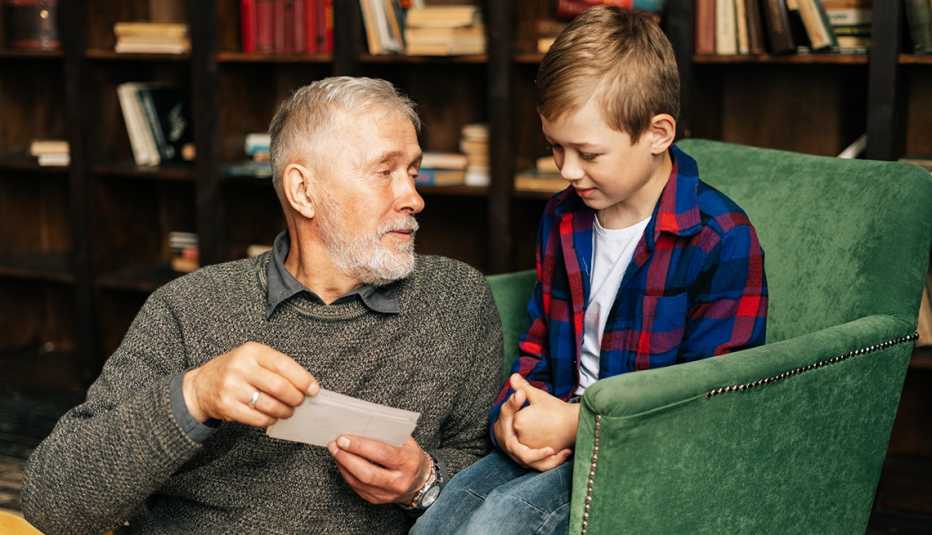Staying Fit


Perhaps it’s because your grandchildren are two generations behind you that they also seem to always be two giant steps behind financially.
They’re not. But that doesn’t mean they don’t need monetary help from grandma and grandpa every now and then. In the end, it’s up to you how much of your retirement savings is for them to use — or not. But how to make those decisions?


AARP Membership— $12 for your first year when you sign up for Automatic Renewal
Get instant access to members-only products and hundreds of discounts, a free second membership, and a subscription to AARP the Magazine.
Should you help pay for their college? For their new cars? For their new homes? And what about all their birthdays and holidays — should you be parting with your money for those, too? What if your grandchild specifically asks you for money? Or what if they don’t ever ask, but you see they could use it?
AARP asked certified financial planners what’s reasonable — and what’s not — when it comes to your grandchildren and your money. One overarching response from all of them: Watch your own financial back before doling out money to your grandchildren.
“Grandparents should be very careful about giving away any money that will affect their ability to maintain their current lifestyle during retirement,” says Mitchell Kraus, a certified financial planner in Santa Monica, California.
Here are 10 of the most commonly asked questions that financial planners say they hear from grandparents about how to financially assist their grandchildren. Some of their answers might surprise you.
1. Should I offer to help pay for my grandkid’s college costs?
In a word: Yes.
In seven words: Only if you have the financial wherewithal. College costs are exorbitant and many students leave college with such enormous debt on their student loans that it stops them from taking other important steps into adulthood, such as purchasing a home, says Kraus.
So, he suggests that helping to pay for their college expenses — or to help pay down their student loans — is one of the most impactful things a grandparent can do. Many grandparents do this by regularly contributing to college 529 plans.
If you put the 529 in your own name it might give you more control, but if you put it in the grandkid’s name, it might simplify things a bit and give your own children better ability to keep track of it. For students seeking more financial aid, it can be advantageous for the 529 to be kept in the grandparents’ name, he says.
2. Should I offer to help pay for my grandchild’s home loan?
In a word: Maybe.
If you do this, do so very carefully — with your eyes wide open. For his part, Kraus discourages grandparents from making substantial contributions to their grandchildren’s homes because it can get very expensive over time. “You have to be prepared to treat all grandchildren the same as far as housing payments are concerned and most don’t have enough to do this for all of their grandkids,” says Kraus.
Think twice, because your financial assistance may unintentionally be steering your grandchild to purchase more house than they can actually afford, warns Michael Whitty, a certified financial planner in Chicago.
That said, most grandparents were raised to believe that owning a home is very important, so helping with a grandkid’s down payment or assisting with the home loan can be extremely satisfying, says Christopher Rand, a certified financial planner in San Diego. “It reduces the probability they’ll do something irresponsible with grandma’s hard-earned money, like buying a Ferrari,” he says.




































































More From AARP
5 Ways To Ruin Your Retirement
Long life is great until you run out of moneyMedical Billing Errors On The Rise
Don’t give up on billing problemsHow to Help Your Grandchild Go to College
Make sure you don’t give away money you’ll need